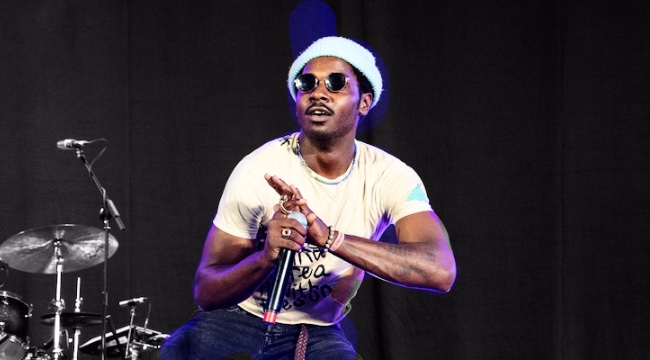
Channel Tres is a walking, talking exercise in contradictions. The Compton native just released Black Moses, the follow-up to his 2018 self-titled debut EP, putting this principle on full display. He’s a rapper who makes house music — or is he a house DJ who raps? The music on Black Moses, like the infectious, four-on-the-floor foot-stomper “Sexy Black Timberlake,” is unlike anything listeners have come to expect from the hip-hop-centric Los Angeles suburb. It’s daring in its willingness to subvert expectations and, of course, Channel Tres is as aware of the contrast as anyone.
Watching him perform, it’s clear that he enjoys shaking up convention. He is an exuberant ball of energy on stage, performing his elaborate choreography with as much enthusiasm as his backup dancers, if not more. When I first watched him perform at Form festival in Arcosanti, AZ, then again in Los Angeles as the opener during Vince Staples’ tour, I was struck by how much he stuck out. That isn’t to say he doesn’t appear comfortable, practiced, and polished as he blends gangsta rap with throwback, soulful house. It’s that the unique combination of styles and influences in his music ensures that he’ll never blend in to any environment — he’s a singular talent, creating one-of-a-kind music.
“I was never in a bubble,” he says over the phone as we discuss the new EP, which he titled after marathoning Blaxploitation films one day (Black Moses was the fifth studio album by Isaac Hayes, who was coming off the successful soundtrack from Shaft at the time). Of course, there’s a far cry from the lounge-y sound of “Brilliant N—a” and “Raw Power” and the church-y organs and deep-voiced soul of “Nothing Takes The Place Of You.” Tres says he was more inspired by the “spirit” of the music over the actual sound.
On the aforementioned track “Brilliant N—a,” Tres raps: “They tried to put shackles on you,” while guest rapper Jpegmafia growls “Word to Dot, these crackers wanna hunt me.” The spirit of the original Black Moses, released during the rise of the “Black is beautiful” movement and Pan-Africanism in the US, lives on in this collection. Tres says he wants to provide an example of something different from the usual — an impulse I can agree with as a fellow former resident of a city just as well known for its crime problems as its gangsta-rap purveying heroes.
“I think a lot of people right now are artists that fit into a category of what you think how they should be,” he explains. “But if you push the conventions, it frees up other kids that are coming after us seeing certain images. It’s hard a lot of times for Black kids to find an image, because we get told what we should be. I just know if I let somebody put me in a box, someone else might not get the freedom to be who they’re supposed to be.” That sort of iconoclasm, however admirable, does come with a price, though.
In Arizona, he joked, “How many people from Compton are here?” You can probably guess how many people raised their hands (it was only me). In LA, he bounced and bopped across the stage at the Novo to a sense of general confusion. It was obvious no one quite “got it.” Much has been made recently of artists like Vince Staples’ and Outkast’s boundary-pushing Afrofuturism, but as much as these groups do strain at the edges of convention, they always remain firmly grounded in the realm of rap. Channel Tres might be the first artist to come from the hip-hop tradition who is willing to push past that, extending the forward-looking philosophy into new territory to ensure it lasts longer than a trend.
It feels almost blasphemous to compare the newcomer to Outkast, but I couldn’t help thinking of their fearlessness. No one got them either, when they first started. This is what we’ll be dancing to on Mars when the planet is colonized and society stratifies the way it always does. The oppressed citizens of that future society will look to the past and find a Black Moses waiting to free their minds — even if only to dance.
Black Moses is out now via GODMODE. Get it here.






